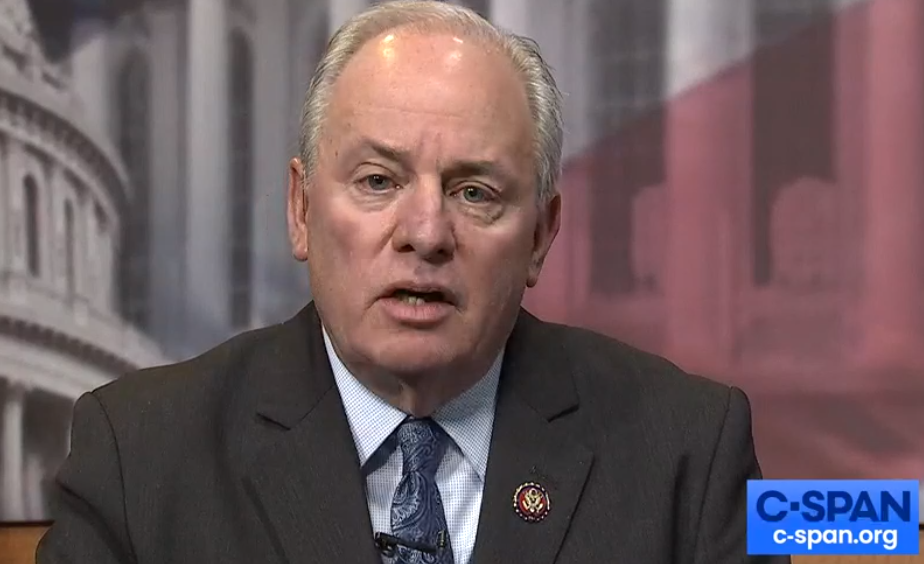Doyle: A President Biden Would Likely Back Return of Net Rules
The smarter way to stay on top of the multichannel video marketplace. Sign up below.
You are now subscribed
Your newsletter sign-up was successful
Rep. Mike Doyle (D-Pa.), chairman of the House Communications Subcommittee, said he is confident that if Vice President Joe Biden were to be elected president, he would work with the Democrats to restore net neutrality rules.

In an interview for C-SPAN's Communicators series, he was asked by a reporter who said the campaign had not weighed in with a position, as some others had, on restoring the 2015 Open Internet order that was overturned by the Ajit Pai FCC in 2017.
But Doyle also said that the focus of a lot of candidates, especially in Western Pennsylvania where he lives, is on the economy. Net neutrality tends to be an important issue with a lot of people in the tech community and younger voters that want to see a level playing field and make sure ISPs don't block content, he said, but that while it is an important issue, he doesn't see it as a "primary" issue (no pun intended).
Doyle has net neutrality legislation that would restore much of the 2015 Open Internet Order, including the rate regulation forbearance. He was asked to respond to candidate Bernie Sanders' support for rate regulation of broadband and Sanders was an outlier.
Doyle said he was not focused on what this or that candidate said they would do or wouldn't do, though he said that would be a question to ask him once there was a nominee. But he did say forbearance is key to building bipartisan support for net neutrality legislation. Democrats, Republicans and ISPs all have said they support legislation to end the legal ping-pong game of rules, rule reversals, and rule challenges. The latest volley will likely come Friday, the deadline for appealing a three-judge decision upholding reclassification and the elimination of the bright-line rules. n
He was asked if he supported the Trump Administration's approach to Huawei, though it was unclear just what he was responding to since the Administration has both cracked down on Chinese telecom and given it some slack, or at least a glide path to a forced exit.
Doyle said, generally, yes. He said the equipment could be used to spy on the U.S. and the country needed to be vigilant. The FCC has voted to deny broadband subsidy funding to any carrier using Huawei (or ZTE) equipment in those buildouts, and more generally to any suspect tech supplier.
The smarter way to stay on top of the multichannel video marketplace. Sign up below.
Doyle said one thing he definitely supports is making sure smaller operators are given financial aid for removing and replacing suspect tech--so they can qualify for the Universal Service Fund subsidies.
Asked what was on the agenda for 2020, Doyle said it would include pushing for a C-Band auction with money for rural broadband, for getting broadband mapping right, and an effort to get the Senate to pass the many communications-related bills that will have passed out of the House.
Doyle would not say that national privacy legislation would necessarily be forthcoming in the new year, with preemption of state efforts a major sticking point.
The congressman said that he did not think Congress should eliminate the Sec. 230 carveout from liability for third-party content on social media platforms, which allows those platforms to operate. He said maybe Congress needed some "flexibility" to look at the section and added that he has told the companies that depend on that shield from civil liability that they needed to do a "much, much better job" of policing themselves, or they will "invite the federal government to do it for them...There are still a lot of things online that need to be taken off line."
But Doyle was also among those who wrote to the U.S. Trade representative to ask that the Sec. 230 language not be included in the USMCA, suggesting that would limit that flexibility to look at the Section. "We don't want to have our hands tied because this section...is in a trade agreement."
Doyle's Communicators episode airs Saturday, Dec. 14 on C-SPAN at 6:30 p.m. ET and Monday, Dec. 16, on C-SPAN2 at 8 a.m. and again at 8 p.m. ET.
Doyle suggested that he thought Dish could potentially become the facilities-based competitor T-Mobile says it will be.
A key condition of the T-Mobile-Sprint deal is the spin-off of Boost Mobile to Dish, which combined with Dish's spectrum holdings and some build-out help from the FCC, is billed as a glide path to Dish being a fourth wireless competitor to Verizon, AT&T and the combined T-Mobile-Sprint. Critics say that scenario is a stretch.
Doyle said it was at least something he hopes could happen. "Any situation that gives Dish the incentives and the tools it needs to be a robust competitor to the other three carriers is good for consumers," he said.
Contributing editor John Eggerton has been an editor and/or writer on media regulation, legislation and policy for over four decades, including covering the FCC, FTC, Congress, the major media trade associations, and the federal courts. In addition to Multichannel News and Broadcasting + Cable, his work has appeared in Radio World, TV Technology, TV Fax, This Week in Consumer Electronics, Variety and the Encyclopedia Britannica.

